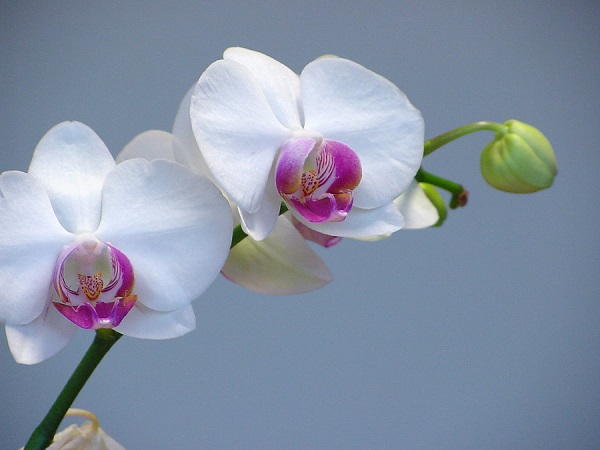
If you’re like most orchid lovers, you have good intentions in using orchid fertilizer on your plants. And you surely want the plants to have all the nutrients necessary. Unfortunately, many people think using fertilizers is like feeding a child, where if you give them all the nutrients they need, they’ll flourish. With orchids, this is not the case.
Most orchid varieties are happy in a basic medium that is not overdone with nutrients. Unlike other plants, orchids need much less fertilizer. Giving them too much is more harmful than not giving them enough. This is why it’s very important not to overfeed your orchids to keep them healthy and happy.
On the other hand, if you give orchids the right amount of fertilizer, at the right time, you will see impressive growth and healthy plants. The trick is to give your plants nutrients in a weak form. Follow the weakly, weekly rule – two doses per week of water and small weekly proportions of fertilizer.
If the orchid fertilizing product you are using says to apply it once a week, water the substance down by 50 percent. Also, about one time per month, water the orchids without any orchid fertilizer. Skipping one feeding will help to clean out any built-up minerals in the soil and on the root bulb, which can cause damage if left alone. It will also help flush out any residue left on the pot.
Indoor orchids should only be fertilized during the active growing season of the summer months, not during the winter dormant period. A weak solution of powder or liquid fertilizer may be given every two weeks.
Most people don’t realize one of the best ways to understand orchids is to look at them in their natural environment. In that environment, orchids are continuously searching for nutrients and when they do come, they are in small quantities. Within the orchid’s natural environment, nutrients come in the form of droppings from animals and decomposing natural materials, like leaves. They are available only in small amounts and often they are in running water or moist ground. Therefore, the orchid is quite good at making the nutrients stretch and it will do the same with the fertilizer.
Giving your orchids fertilizers in heavy doses is much like giving someone medication at too high of a dose. It does them little good and it can cause harm. The following is a list of the nutrients that orchids need:
- Calcium
- Carbon
- Hydrogen
- Phosphorus
- Potassium
- Magnesium
- Nitrogen
- Oxygen
- Sulfur
In addition, orchids also need micronutrients. These include iron, chlorine, boron, manganese, zinc, and copper. Remember that hydrogen, carbon, and oxygen come from the natural surroundings (water and air) and therefore do not need to be in the fertilizer you use. Do not be concerned with orchid fertilizers having the other micronutrients, since these are also in the water and most natural potting soils, especially when you choose organic versions.
Liquid fertilizers must be applied after watering the orchids. With regard to manure, remember to keep it away from the pseudobulbs to keep them from getting burned. As a general common-sense rule when buying any type of orchid fertilizer, simply read the label. Orchid fertilizers do not need to be specific orchid fertilizing products. The label does not need to read “orchid safe.”
Rather, there is little difference between using a standard plant fertilizer and an orchid-based product. Look at the packaging to ensure you have a 20-10-10 mixture, or if you are using something other than bark or tree fern, look for a 20-20-20 mixture.
By providing this mixture to your orchids, they will do well on a regular basis. Remember, orchid fertilizer is not something to overuse…or overthink!
Mary Ann Berdak is the publisher of OrchidCareZone.com – a top online destination for orchid growing tips and advice. For more information on caring for your newly purchased plants including a free download of her report, “The 5 Biggest Orchid Mistakes (and How to Avoid Them!)” visit OrchidSecretsRevealed.com.
Related Articles & Free Email Newsletter Sign Up
4 Simple Orchid Care Tips for Newbies
5 Warning Signs That Your Orchids Are in Trouble
How to Care for Phalaenopsis Orchids Before and After Blooming




Comment here